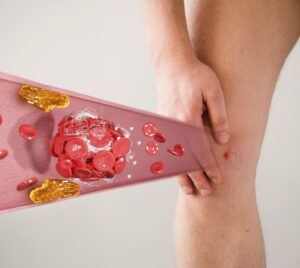
Which treatment is best for acne?
Acne is a common skin condition that affects people of all ages, characterized by pimples, blackheads, whiteheads, and sometimes deeper cysts or nodules. It can be caused by a variety of factors, including hormonal changes, genetics, bacteria on the skin, and excess oil production. Effective treatment for acne depends on its severity and individual skin type. This guide explores various treatment options, from over-the-counter remedies to prescription medications like Buy tretinoin 0.1 and Adapalene gel 0.1 and professional interventions.
Understanding Acne:
Acne occurs when hair follicles become clogged with oil and dead skin cells. This environment is ideal for bacteria to thrive, leading to inflammation and the formation of different types of acne lesions:
- Whiteheads: Closed comedones that appear as small, flesh-colored bumps.
- Blackheads: Open comedones that appear as dark spots due to oxidized melanin.
- Papules: Small, red, tender bumps without a visible center of pus.
- Pustules: Red, tender bumps with a white center of pus.
- Nodules: Large, painful, solid lumps beneath the surface of the skin.
- Cysts: Deep, painful, pus-filled lumps beneath the skin that can cause scarring.
Over-the-Counter Treatments:
For mild to moderate acne, over-the-counter (OTC) treatments can often be effective:
- Benzoyl Peroxide: Kills bacteria, reduces inflammation, and helps unclog pores. Available in cleansers, lotions, and gels.
- Salicylic Acid: Helps exfoliate dead skin cells and unclog pores. Found in cleansers, toners, and spot treatments.
- Sulfur: Has antimicrobial and anti-inflammatory properties. Often used in spot treatments and masks.
- Topical Retinoids: Derived from vitamin A, they help prevent hair follicles from becoming plugged. They are available in different strengths and formulations.
Prescription Medications:
When OTC treatments are not effective, or acne is moderate to severe, a dermatologist may prescribe stronger medications:
- Topical Antibiotics: Such as clindamycin or erythromycin, which kill bacteria and reduce inflammation.
- Topical Retinoids: Prescription-strength retinoids like tretinoin (Retin-A) or adapalene (Differin) are more potent than OTC versions and help prevent pores from clogging.
- Oral Antibiotics: Including doxycycline, minocycline, or tetracycline, which reduce bacteria and inflammation. They are typically used for moderate to severe inflammatory acne.
- Oral Contraceptives: For women, certain birth control pills can help regulate hormones and reduce acne.
- Isotretinoin (Accutane): A powerful oral medication reserved for severe cystic acne that is resistant to other treatments. It reduces oil production, prevents acne formation, and may require close monitoring due to potential side effects.
Professional Treatments:
Dermatologists may recommend various procedures to treat acne and reduce the risk of scarring:
- Chemical Peels: Exfoliate the skin and help improve the appearance of acne scars. They can be mild to deep, depending on the severity of acne.
- Laser and Light Therapies: Target bacteria on the skin, reduce inflammation, and promote healing of acne lesions.
- Extraction of Whiteheads and Blackheads: Dermatologists can perform this procedure to manually remove comedones.
Lifestyle and Home Remedies:
In addition to medical treatments, certain lifestyle changes can help manage acne and improve overall skin health:
- Gentle Cleansing: Wash the face twice daily with a mild cleanser to remove excess oil and dirt without irritating the skin.
- Moisturizing: Use a non-comedogenic moisturizer to keep the skin hydrated without clogging pores.
- Sun Protection: Apply sunscreen daily to protect the skin from UV damage, which can worsen acne scars.
- Healthy Diet: Eat a balanced diet rich in fruits, vegetables, whole grains, and lean proteins. Limit dairy and sugary foods, as they may exacerbate acne in some individuals.
- Stress Management: Practice stress-reducing activities such as yoga, meditation, or deep breathing exercises, as stress can trigger acne flare-ups.
Choosing the Right Treatment Plan:
Finding the best treatment for acne requires a personalized approach based on the severity of acne, skin type, and individual response to treatments. It’s essential to consult a dermatologist or healthcare provider who can assess your skin, recommend appropriate treatments, and monitor progress over time. Patience is key, as acne treatments may take several weeks to months to show significant improvement.
Conclusion:
Acne is a common skin condition that can have a significant impact on self-esteem and quality of life. Fortunately, there are many effective treatments available, ranging from over-the-counter remedies to prescription medications and professional interventions. By understanding the causes of acne and adopting a comprehensive treatment plan that includes proper skincare, lifestyle adjustments, and medical treatments when needed, individuals can effectively manage acne and achieve clearer, healthier skin. Remember, everyone’s skin is unique, so it may take some experimentation to find the right combination of treatments that work best for you.


